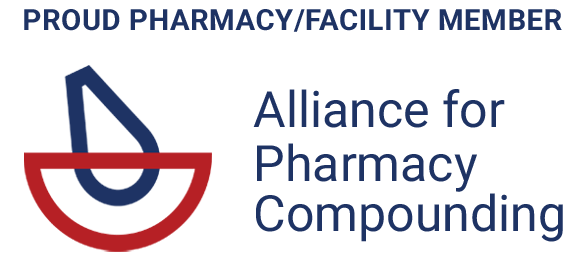What is Andropause?
Andropause, often referred to as the male equivalent of menopause in women, is a natural process characterized by a gradual decline in male hormone levels, specifically testosterone. It is also known as testosterone deficiency or androgen deficiency. Unlike menopause, the onset of symptoms and hormonal changes in men during andropause can be slower and more subtle.
Testosterone, the primary male sex hormone, is responsible for various masculine characteristics such as deep voice, muscle mass, and male facial and body hair patterns. As men age, the level of testosterone in their bodies gradually decreases, typically at a rate of about 1% per year from the age of 30 onwards. This decline is a normal part of the aging process, and men may begin to experience physical and psychological symptoms associated with low testosterone levels starting in their 50s.
Symptoms of Andropause
Similar to menopause, andropause can manifest a range of symptoms, although not all men will experience the same issues, and some may have no symptoms at all. However, low hormone levels during andropause may increase the risk of other health conditions, including osteoporosis (brittle bones) and heart disease.
Common symptoms of andropause include:
- Low sex drive
- Erectile dysfunction
- Sleep disturbances, such as insomnia or increased sleepiness
- Feelings of sadness or depression
- Lack of motivation and decrease in self-confidence
- Irritability and mood swings
- Trouble concentrating
- Loss of strength or muscle mass
- Increased body fat
- Loss of body hair
- Lack of energy
- Hot flashes
Causes of Andropause Symptoms
Andropause is not considered a disease but rather a natural process that occurs as the body ages. The primary cause of its symptoms is the gradual decrease in testosterone production by the testicles.
Diagnosis
If you experience symptoms suggestive of andropause, it is important to discuss them with your doctor. A blood test can measure your level of bioavailable testosterone, providing valuable information for diagnosis.
Your healthcare provider may also explore other potential underlying conditions that can affect testosterone levels, such as obstructive sleep apnea. Identifying and addressing these conditions may lead to a natural return to therapeutic testosterone levels without the need for additional therapy.
Andropause Therapy
Testosterone levels can vary significantly among men, and not all men with lower-than-average testosterone levels will experience noticeable signs or symptoms. In such cases, therapy may not be necessary. However, if you are experiencing symptoms of andropause that significantly affect your daily life, your doctor may recommend hormone replacement therapy (HRT) to replace the deficient hormones. Testosterone replacement therapy is the most common form of HRT and can provide relief from andropause symptoms. Your doctor will help determine if testosterone therapy is appropriate for your specific situation.
In some cases, testosterone replacement therapy may be accompanied by the addition of other supplements or medications, such as pregnenolone, DHEA, aromatase inhibitors, or chrysin, depending on individual needs.
In addition to medical interventions, simple lifestyle changes like quitting smoking, regular exercise, and stress reduction can support your treatment and may be recommended by your physician.
How Valiant Can Help
Valiant Compounding Pharmacy specializes in compounding bioidentical hormones in various dosage forms, strengths, and combinations to help men experiencing andropause regain a sense of vitality and well-being. Our compounding pharmacists can prepare personalized medications tailored to your specific needs, including injectable pellets, oral and sublingual tablets, blended creams, and injectables. We also provide compounded medications targeting specific issues such as hair loss, dry skin, or low sex drive. Our focus is on ensuring that your doctor has access to the right medications to address your unique requirements, allowing you to enjoy optimal health and lifestyle.
If you are going through andropause or have concerns about any of the symptoms mentioned, we encourage you to reach out to us for more information. Initiate a conversation with your doctor to explore whether a compounded prescription may be the right therapy for you. We are here to support you on your journey to improved hormonal balance and overall well-being.
Understanding Male Sexual Dysfunction
Male sexual dysfunction refers to any condition that hinders sexual satisfaction for either the individual or their partner. While it can affect men of all ages, it becomes more prevalent as one gets older.
Symptoms of Male Sexual Dysfunction
- Erectile Dysfunction (ED)
Erectile dysfunction, also known as impotence, refers to the difficulty in achieving or maintaining an erection suitable for sexual intercourse. ED is a widespread condition, with studies indicating that it affects approximately half of American men over the age of 40. - Ejaculation Problems including premature ejaculation, delayed ejaculation, or ejaculating into the bladder rather than through the penis.
- Low libido is diminished or absent sexual desire.
Causes of Male Sexual Dysfunction
Male sexual dysfunction can arise from various physical, psychological, or combined factors that affect the complex interplay between the mind, nervous system, circulatory system, and hormone levels.
Certain prescription drugs, such as antidepressants, high blood pressure medications, and antihistamines, can also contribute to or worsen sexual dysfunction symptoms. If you have concerns about your current medications, it is essential to discuss them with your doctor.
Diagnosis
To diagnose male sexual dysfunction, your doctor will likely inquire about your current symptoms, medical history, and sexual history.
A physical examination may be conducted, which could include an assessment of the penis and testicles, a rectal exam to check the prostate, a blood pressure check, and blood tests to evaluate hormone levels.
Treatment for Male Sexual Dysfunction
Treatment may include hormone replacement therapy and supplements, such as pregnenolone, DHEA, aromatase inhibitors, chrysin, or trace minerals to help regulate hormonal imbalances or target specific symptoms.
Therapies are also available to help achieve and maintain healthy erections when needed and medications can be prescribed to help increase sexual desire.
Consult with our Valiant compounding pharmacist to explore appropriate treatment options tailored to your specific needs and circumstances.

